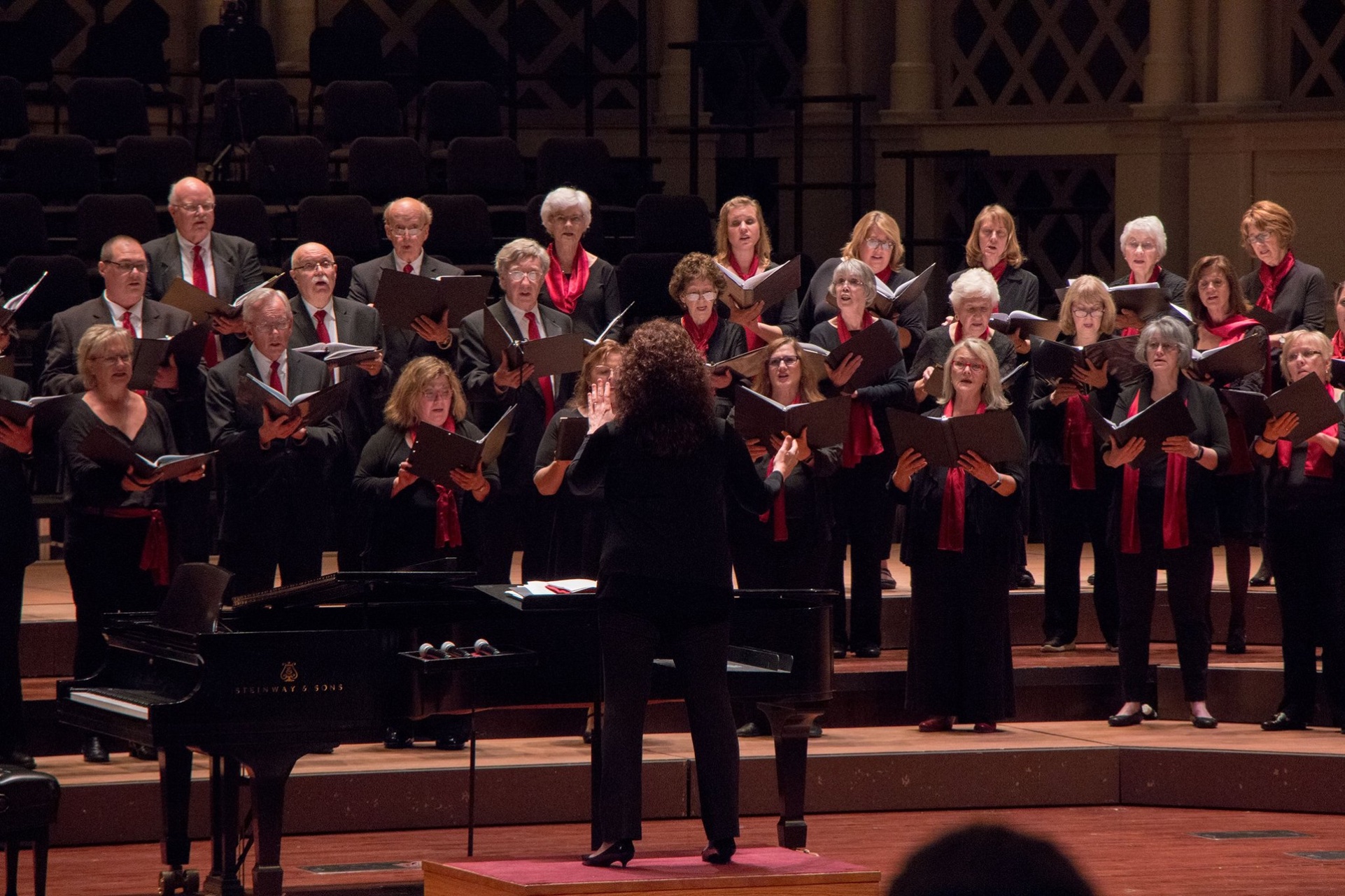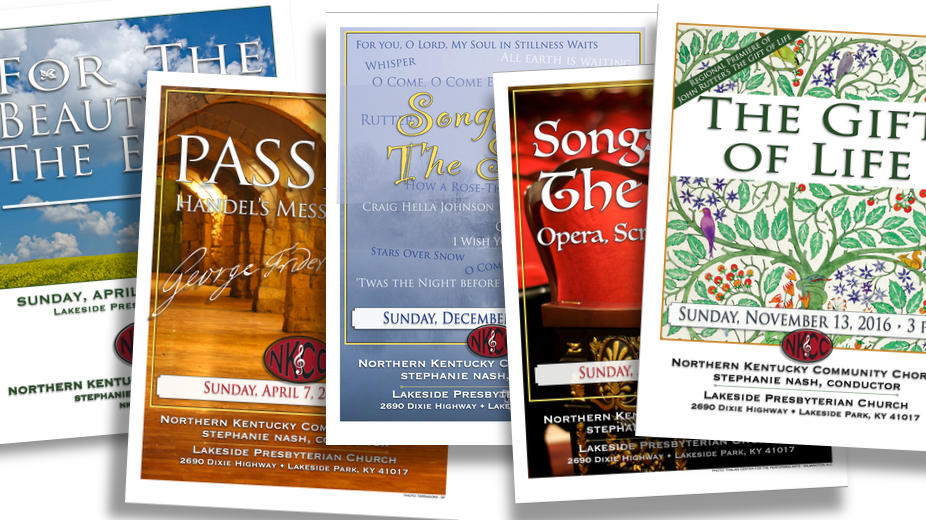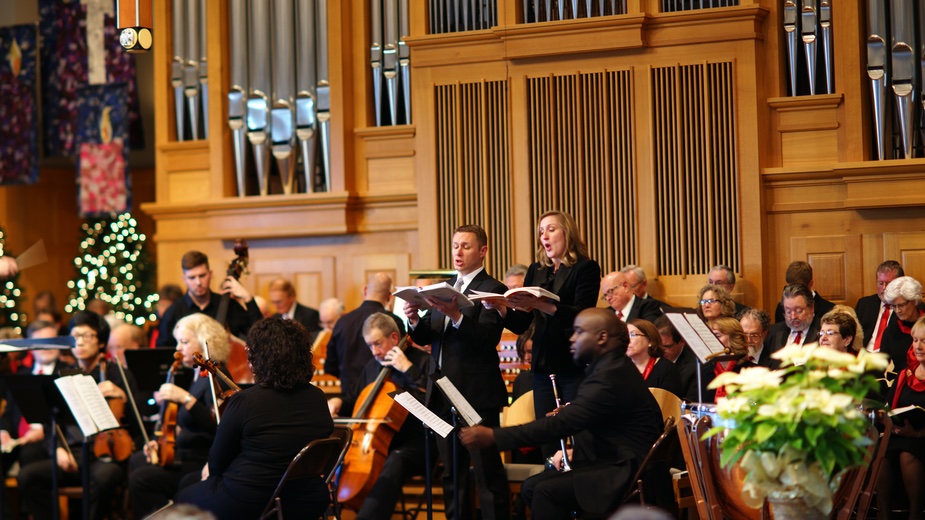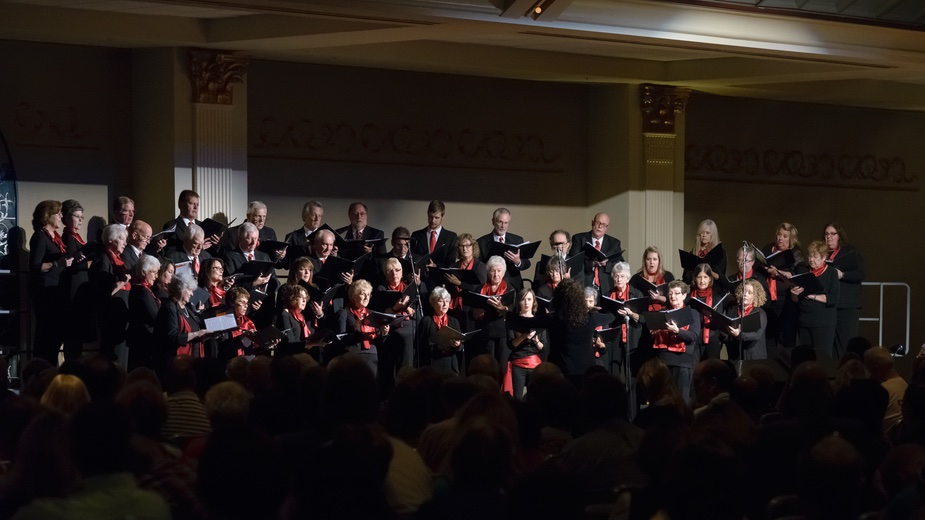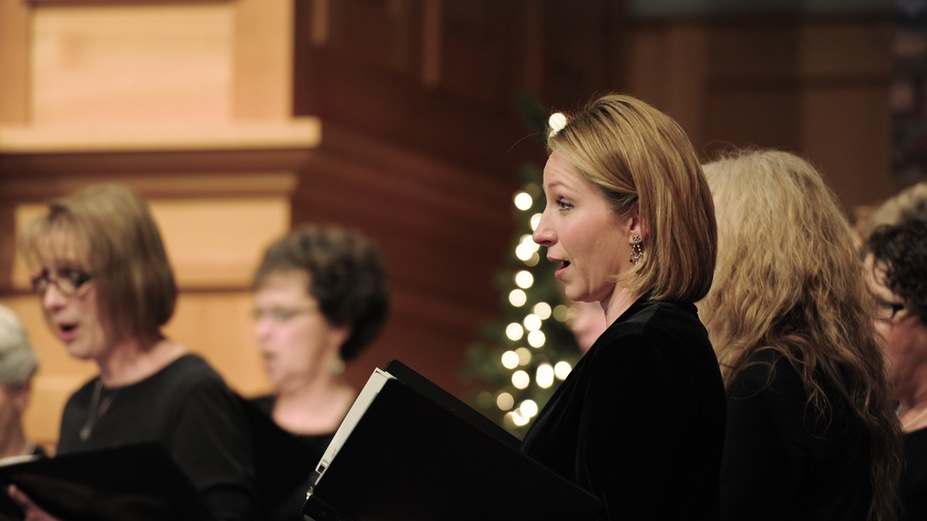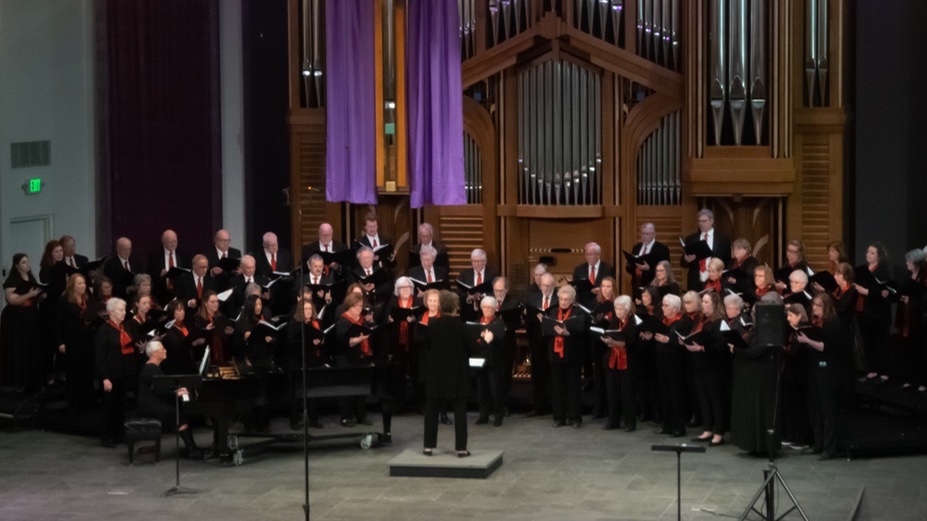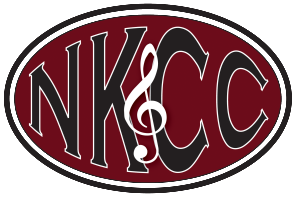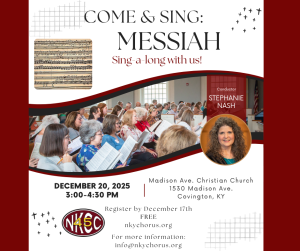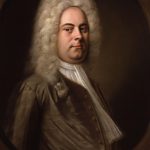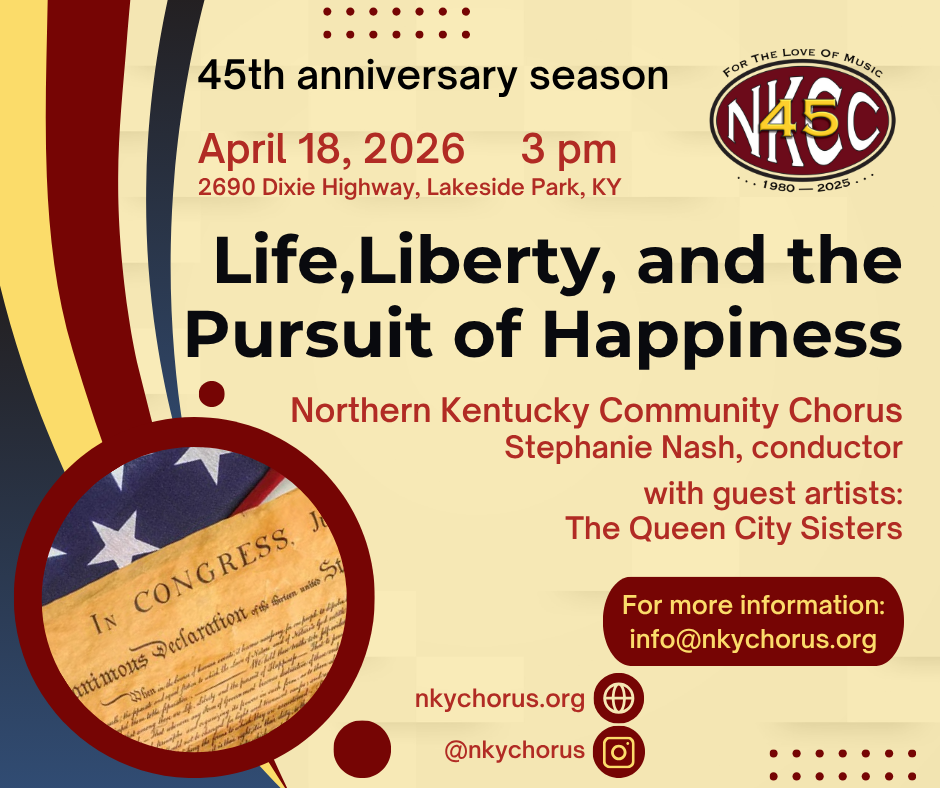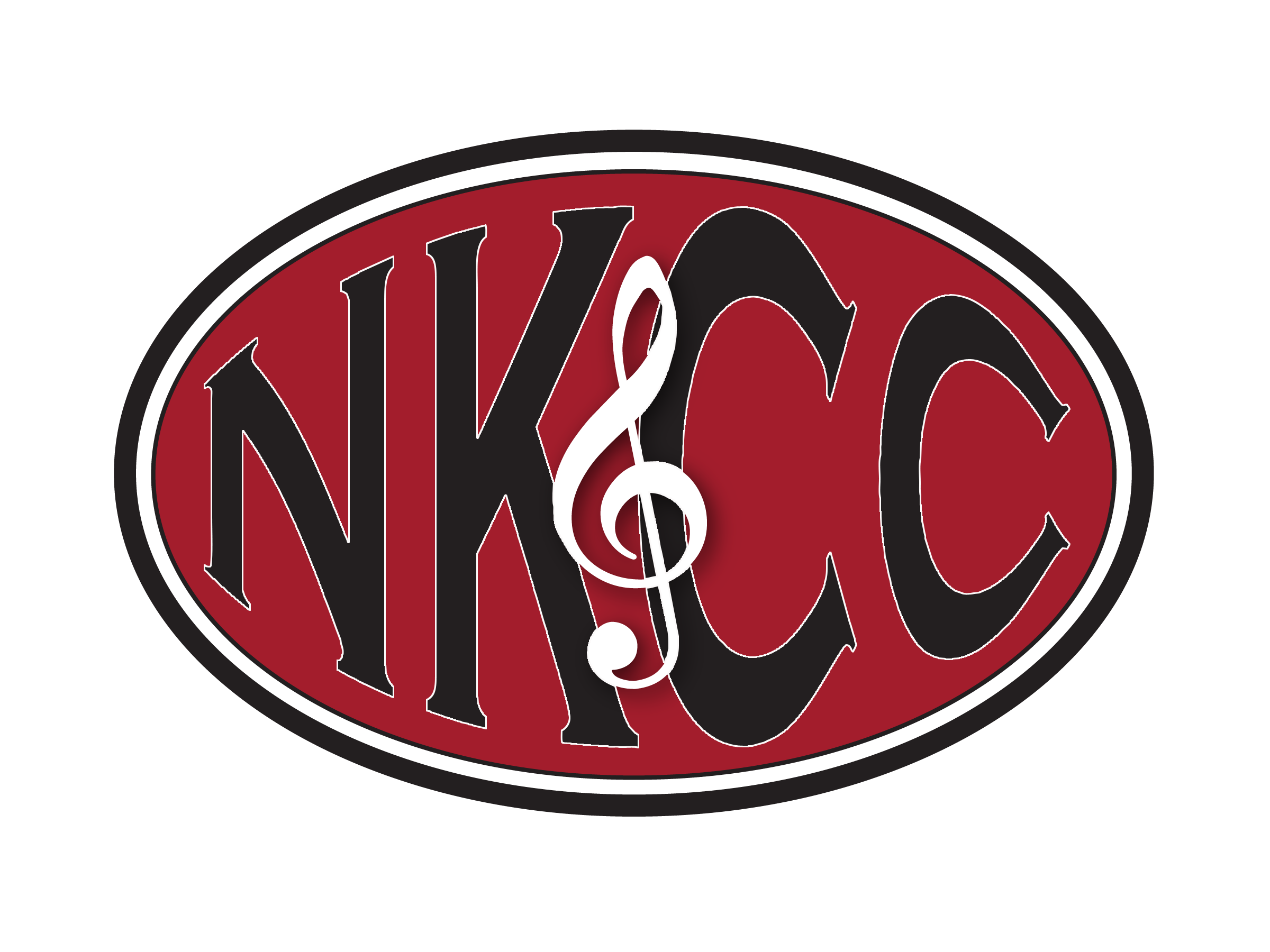
Come and Sing: Messiah
December 20, 2025, 3:00 – 4:30 pm
Sing Handel’s Messiah with Us!
NKCC and Madison Avenue Christian Church in Covington (click for directions) invite you to a free Messiah Sing-Along, where the audience becomes the choir. Music will be provided—just bring your voice and your love of great music.
This beloved tradition holds special meaning for us as Messiah was the first masterwork NKCC performed in December 1980, at Mother of God Church in Covington, and we’ve returned to it eighteen times since. Come be part of the music, the history, and the joy. This is our gift to the community – it’s free.
Register by clicking here, so that we know how many voices will join us!
Life, Liberty and The Pursuit of Happiness
April 18, 2026
As part of this milestone year, our April 2026 concert will also commemorate the 250th anniversary of the Declaration of Independence with a special program titled “Life, Liberty, and the Pursuit of Happiness”. The concert will unfold in three thematic sections—each inspired by one of the founding ideals—and will feature a compelling selection of choral works that reflect and reimagine these core American values. Music by Kentucky composer Keith McCutchen, spirituals associated with the Underground Railroad, and texts by renowned Kentucky poet Wendell Berry will be woven throughout the program, paying tribute to the region’s rich artistic and historical legacy. NKCC has a proud tradition of performing patriotic music at the annual Veterans Day ceremony at Highland Cemetery in Fort Mitchell, KY. Continuing in that spirit, the “Liberty” section of the concert will include a tribute to the armed forces, honoring both veterans in our audience and within our chorus. The “Life” and “Pursuit of Happiness” sections will explore themes of human connection, community, and the aspirations that shape our shared future.
In celebration of our anniversary season, we are excited to feature guest artists, The Queen City Sisters—a dynamic vocal trio known for their tight harmonies and nostalgic renditions of popular songs from the 1940s to 1960s. Their vibrant presence and vintage flair will add a unique and joyful dimension to the program, enriching our exploration of these enduring American ideals. The Queen City Sisters will sing three pieces on each section in the concert which will not only elaborate on the ideals of “Life, Liberty, and the Pursuit of Happiness”, but they will also bring Kentucky history into the concert with pieces made famous by Rosemary Clooney.
Lakeside Presbyterian Church
Singing in a chorus is good for you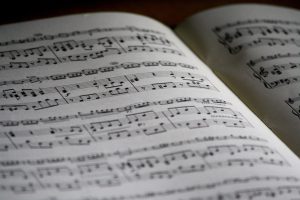
“ The physiological benefits of singing, and music more generally, have long been explored. Music making exercises the brain as well as the body, but singing is particularly beneficial for improving breathing, posture and muscle tension. Listening to and participating in music has been shown to be effective in pain relief, too, probably due to the release of neurochemicals such as β-endorphin (a natural painkiller responsible for the “high” experienced after intense exercise).
There’s also some evidence to suggest that music can play a role in sustaining a healthy immune system, by reducing the stress hormone cortisol and boosting the Immunoglobin A antibody. Music has been used in different cultures throughout history in many healing rituals, and is already used as a therapy in our own culture (for the relief of mental illness, breathing conditions and language impairment, for example). Everyone can sing – however much we might protest – meaning it is one of the most accessible forms of music making, too. Song is a powerful therapy indeed.
Regular choir members report that learning new songs is cognitively stimulating and helps their memory, and it has been shown that singing can help those suffering from dementia, too. The satisfaction of performing together, even without an audience, is likely to be associated with activation of the brain’s reward system, including the dopamine pathway, which keeps people coming back for more.”
Jacques Launay, Postdoctoral Researcher in Experimental Psychology, University of Oxford.
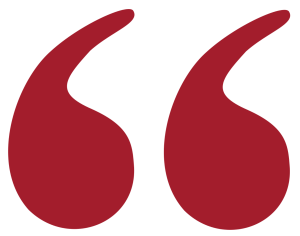
That first breath that a choir or orchestra takes together, a breath filled with focus, intention and emotion, a breath unified for no other reason than to make something beautiful together… that is the reason we do what we do.
— Eric Whitacre, American composer
